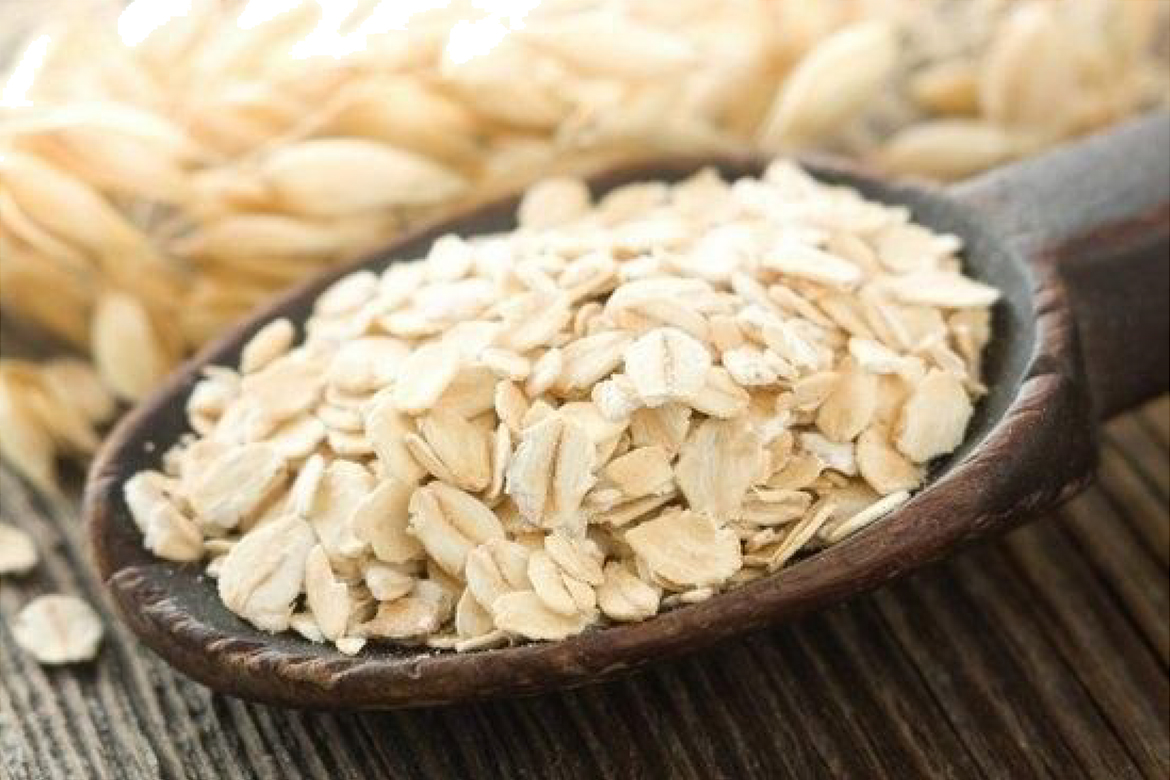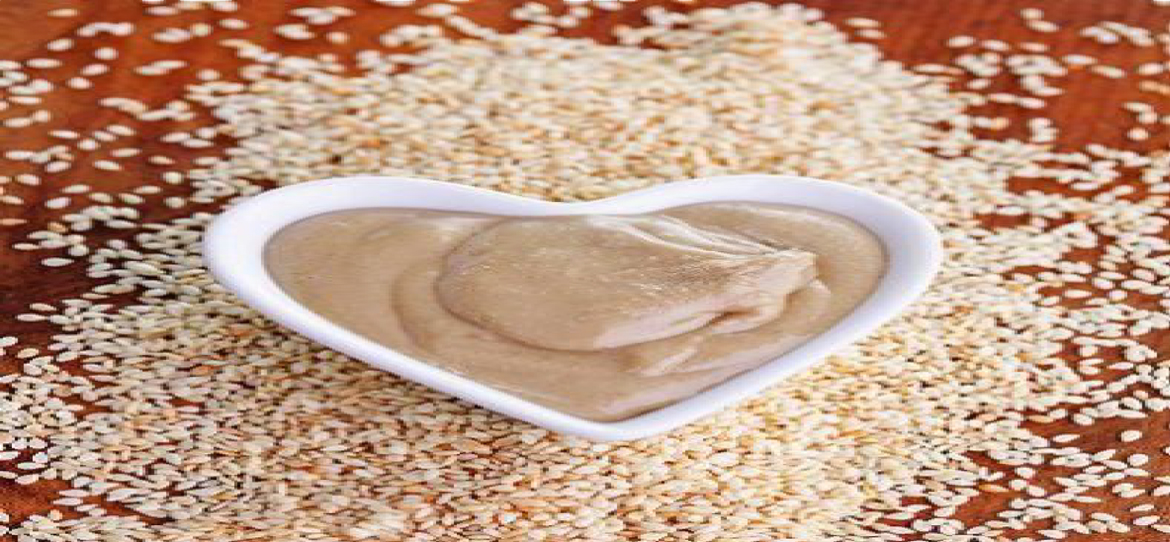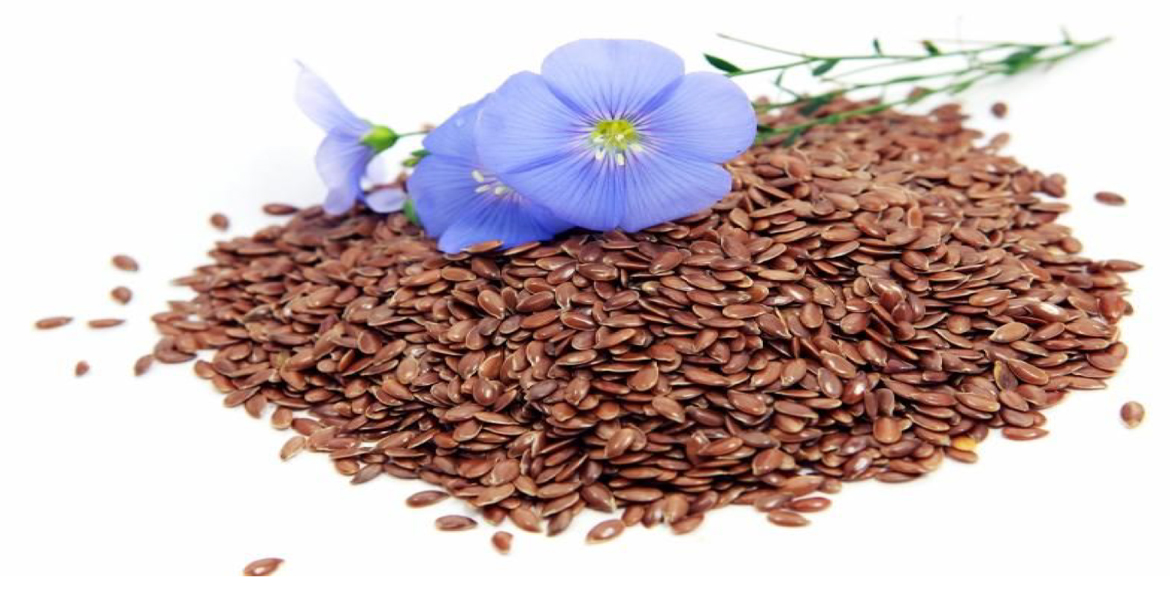Oatmeal
Avena sativa is the botanical name of certain species of the genus of Avena belonging to the Gramineae family (grass family).
The oatmeal is considered to be one of the healthiest seeds in the world. More specifically, according to studies conducted worldwide, it has been proved that the oatmeal consumption has numerous health benefits for the human body.

-
Source of vitamins, metals and trace elements
The oatmeal is rich in vitamins, metals and trace elements. As it is referred, a hundred grams of oatmeal contain:
- Manganese: 246% of the recommended daily intake
- Phosphorus: 52% of the recommended daily intake
- Magnesium: 44% of the recommended daily intake
- Copper: 31% of the recommended daily intake
- Iron: 26% of the recommended daily intake
- Zinc: 25% of the recommended daily intake
- Folic acid: 14%of the recommended daily intake
- Calcium: 5% of the recommended daily intake
- Vitamin B1 (thiamine): 51% of the recommended daily intake
- Vitamin B5 (Pantothenic acid): 13% of the recommended daily intake
From a nutritional aspect, these percentages correspond to 66 grams of carbohydrates, 16,9 grams of protein, 6,9 grams of fat and last but not least 10,6 grams of fiber. All the previously mentioned are equivalent to almost 389 calories.
-
It helps keep blood pressure low and prevents cardiovascular diseases
Oatmeal is full of antioxidants and beneficial polyphenols. The most significant thing is that a unique family of antioxidants known as avenanthramides can be found almost exclusively in oatmeal. These antioxidants increase the production of nitric oxide and help maintain a low blood pressure. The nitric oxide dilates the red blood vessels and results in better blood circulation. Furthermore, these antioxidants have anti-inflammatory and anti-itching effects.
-
It helps regulate blood sugar
Oatmeal contains a powerful complex of soluble fiber called beta-glucan. The consumption of oatmeal can increase the blood sugar for longer period. It is necessary to check the blood glucose and insulin levels in the body in order to prevent many compilations related to Type 2 Diabetes. The beta- glucan slows down the increase of blood glucose after a meal and delays their decrease before that. Given that beta-glucan
contained in the soluble fiber of oatmeal is digested, a solid mass is formed and this is what causes the increase of the viscosity of gastric and small intestine contents. This procedure delays digestion and extends the absorption of carbohydrates during blood circulation. Consequently, there are no dramatic changes in the blood sugar levels. -
It helps lower the LDL cholesterol
The oatmeal is an ally to the battle against bad cholesterol. Not only does it help lower the total cholesterol levels and but it protects from the LDL cholesterol and the damage it can cause to the human body. Cardiovascular diseases are the main reason of death worldwide and one of the major factors is the high blood cholesterol. As various researches have shown, the beta-glucan contained in oatmeal is highly effective in the reduction of LDL cholesterol. It can increase the discharge of cholesterol reducing this way, the already existed blood cholesterol. The LDL cholesterol oxidization which happens from its reaction with the free radicals is another crucial factor linked to cardiovascular diseases. It results in blood vessel clot, tissue damage and even heart attacks or strokes. A relevant research has shown that the antioxidants contained in
oatmeal can corporate with vitamin C in order to prevent LDL oxidization. -
It helps weigh reduction
Oatmeal contains high amounts of protein and dietary fiber and thus it provokes a feeling of fullness and saturation. Consequently, it helps to achieve and maintain an ideal weight. The beta-glucan increases the secretion of peptide YY, a hormone produced in the gut which regulates appetite. It has been proved that this feeling of fullness leads to a lower intake of calories and can prevent obesity.
-
It gives energy
Oatmeal, as well as other cereals, serves as the main source of protein providing enough calories and energy to cover various energy needs. It has been proved that it favorably alters metabolism and enhances performance when ingested approximately 45 to 60 minutes before any type of moderate intensity level exercise. Furthermore, oatmeal contains more protein than any other cereals. More specifically, 100gr of oatmeal
contains twice as much protein as 100gr of wheat or corn flakes. Needless to say that the quality of the protein found in oatmeal is superior to the one found in wheat or other cereal. This protein is used for tissue construction, repair and maintenance as well as the body’s energy. -
Improves the immune system
The beta- glucan contained in oatmeal is essential in building up the strength of the immune system. It counteracts various infections and it can lead to faster healing. According to a new study, it has been discovered that beta-glucan is able to lead certain cells of the human immune system exactly where the infection is resulting in faster healing and a speedy recovery.
-
It helps reduce the risk of osteoporosis
As previously stated, oatmeal is rich in calcium, phosphorus and magnesium; elements that contribute to bone mineral-content, strengthen the bones and reduce the risk of osteoporosis.
-
Oatmeal is detoxifying
Due to the fact that oatmeal is rich in amino acids, it enhances the lecithin production by
the liver, a substance that expels toxins from the human body.

Taking everything into account you should definitely include oatmeal in your diet starting from today!
Sesame seeds pulp (tahini)
It is about a nutritional treasure that everybody should have since it is rich in nutrients and protein.
Sesame seeds pulp contain vitamins B which plays an important role in the body function. It increases metabolism, boosts the immune as well as the nervous system and maintains a healthy skin. Sesame seeds pulp is rich in calcium which is a significant tool in the fight against osteoporosis. Moreover, manganese and selenium are highly detoxifying, while copper helps to reduce and manage arthritis pain. If you suffer from headaches or migraines, try to eat sesame pulp as the phosphorus and magnesium contained assist in combating the pain effectively. Furthermore, it lavishly “gives” you valuable substances that make your organism resistant to damage or diseases. With its iron it helps you to maintain your physical and mental well-being whereas its potassium and zinc improve your immune system.
On the whole, it is very important to include sesame pulp in our diet in every possible way since it is the ideal nutrient supplement. It is a protein-rich paste that can be consumed anytime during the day in every form; for breakfast, as a snack, mixed with honey, in food etc. Additionally, it is
a great choice during fasting periods. Attention! Sesame seeds pulp may assure a healthy body but it has to be consumed in moderation due to its high caloric value.

Nutritional values per 100gr
| Calories: 594kcal | Yδατάνθρακες: 21g |
| Fats: 54g | Dietary fiber: 9g |
| Cholesterol: 0mg | Sugars: 0,5g |
| Sodium: 115mg | Protein: 17g |
| Potassium: 414mg | Vitamin Α: 67IU |
| Vitamin C: 0mg | Calcium: 426mg |
| Iron: 9mg | Vitamin D: 0IU |
| Vitamin B: 60,1mg | Vitamin B12: 0μg |
| Magnesuim: 95m |
Linseed
Its Latin name is Linum usitatissimum (linseed the beneficial) and not for no reason.
The linseed, or flaxseed, is rich in fiber both soluble and insoluble. The soluble fiber helps to reduce cholesterol and the levels of glucose in the body while the insoluble one enhances the proper bowel function. Only one single teaspoon of linseed contains 8 gr of fiber. The health benefits of linseed are numerous and of high significance. It is well known for its anticancer properties because, as previously mentioned, lignans have the ability to balance hormones and prevent tumors from growing; reducing this way the risk of breast cancer. The linseed enhances the cardiovascular system, maintaining blood pressure in moderate levels and reduces the risk of cardiovascular problems. What is more, it reduces the cholesterol levels
whereas the O-3 fatty acids help to lose weight because they provoke a feeling of fullness leaving sufficient time to the digestive system to process the protein and fiber and limiting our craving for more food. A thing that should also be mentioned is that linseed prevents blood sugar levels from spiking. In other words, it maintains them in normal levels without fluctuations.
Consequently, there are numerous reasons why the linseed is called a superfood.

Nutritional values per 100gr
| Calories: 533kcal | Carbohydrates: 29g |
| Fats: 42g | Dietary fiber: 27g |
| Cholesterol: 0mg | Sugars: 1.6g |
| Sodium: 30mg | Protein: 18g |
| Potassium: 813mg | Vitamin Α: 0IU |
| Vitamin C: 0,6mg | Calcium: 255mg |
| Iron: 5,7mg | Vitamin D: 0IU |
| Vitamin B: 60,5mg | Vitamin B12: 0μg |
| Magnesium: 392m |




